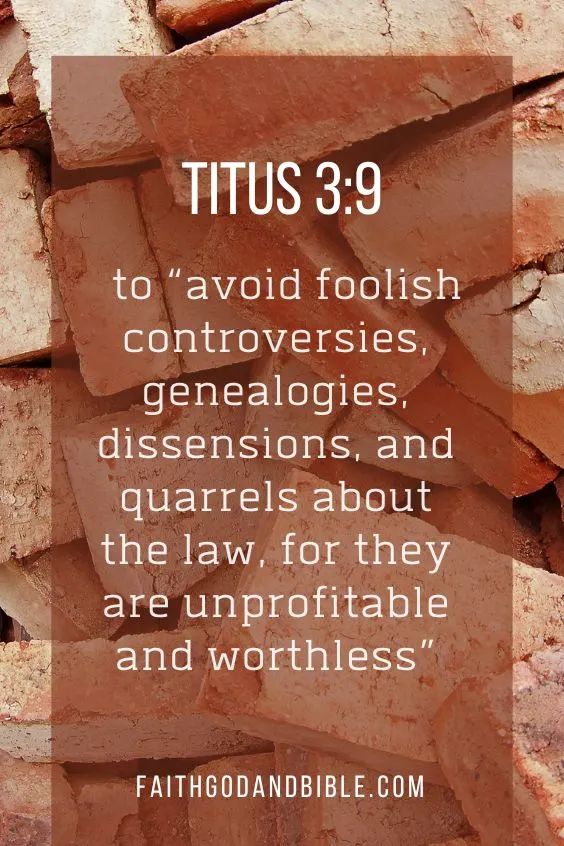The Bible is pretty clear about the importance of genealogy. Before and since the first century, there was a strong move by Jewish people to confidently know one’s genealogy. The reason why they do this is to prove that they were truly Israelites or descendants of Jacob. Researchers suggest that genealogy provides us with “bragging rights”, especially if we are related to someone who is great. Humans wanted to be related to someone who had done amazing or heroic deeds in this world.
We can find myriad genealogical records in the Holy Bible. Many of us find these sections tedious and boring. Some also think that Biblical genealogy records are largely irrelevant to the larger faith. However, they are part of the Word of God, and since the Bible is God-breathed (2 Timothy 3:16 All Scripture is God-breathed and is useful for teaching, rebuking, correcting and training in righteousness,), these genealogical records must bear some value or significance. Surely, there is something that we can learn from these lists or records.

What Does The Bible Say About Genealogy?
The Purpose of Genealogy
One of the purposes of genealogy is to substantiate the historical accuracy of the Bible. The genealogical records that we see in the Scripture confirm the real physical existence of the characters in the Bible. The Bible provides us with family histories, which proves the existence of certain characters, such as David and Jesus. These characters are not mere stories or parables. Genealogy authenticates historical Biblical truths. Jesus was an actual man. Because of genealogy, the majority of scientists and historians today agree that the historical Jesus did exist.
Another important aspect of genealogy in the Bible is that it confirms prophecies. It is said in the Bible that The Messiah or Christ is to come in the line of King David (Isaiah 11:1 A shoot will come up from the stump of Jesse; from his roots a Branch will bear fruit.). And God, who is the Author of the Bible, confirms this by recording Jesus’ lineage in the Bible (Matthew 1:1-17; Luke 3:23-38). The genealogy listed in the gospel of Matthew and Luke attests to Jesus’ fulfillment of the Old Testament prophecies.

What Does The Bible Say About Genealogy?
We can catch a glimpse of the nature and character of God by reading the Bible. By studying genealogy, we can also discover how organized and detail-oriented our God truly is. God is sovereign, and at the same time has perfect precision in whatever He does. Genealogies in the Bible prove that God was indeed involved. It also proves how God cares about each individual and the details of their life (Matthew 10:27-31).
Apart from giving us glimpses of the nature of God, genealogical records can also give us some idea of how the people lived their lives during Biblical times. It gives us a better understanding about the covenant of God and the Messianic line. Reading genealogies bolsters the historicity and the authenticity of the Bible, confirms prophecies, and gives us insight into the nature or character of God and the lives of His people.
It is indeed helpful to read and study Biblical genealogy, but be very careful when practicing it ourselves. The Bible warns us in Titus 3:9 to “avoid foolish controversies, genealogies, dissensions, and quarrels about the law, for they are unprofitable and worthless”. The apostle Paul also warned believers in 1 Timothy 1:3-4, “As I urged you when I was going to Macedonia, remain at Ephesus so that you may charge certain persons not to teach any different doctrine, nor to devote themselves to myths and endless genealogies, which promote speculations rather than the stewardship from God that is by faith.” (ESV).

What Does The Bible Say About Genealogy?
Leave a comment